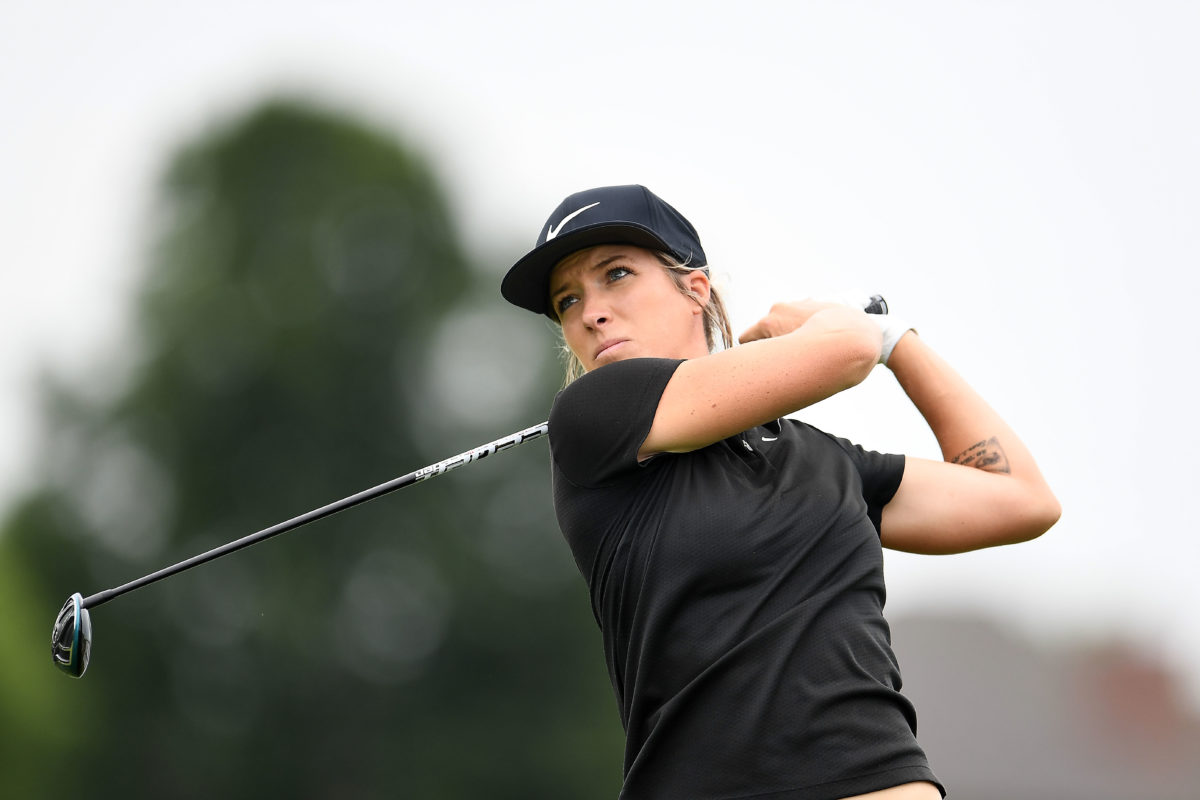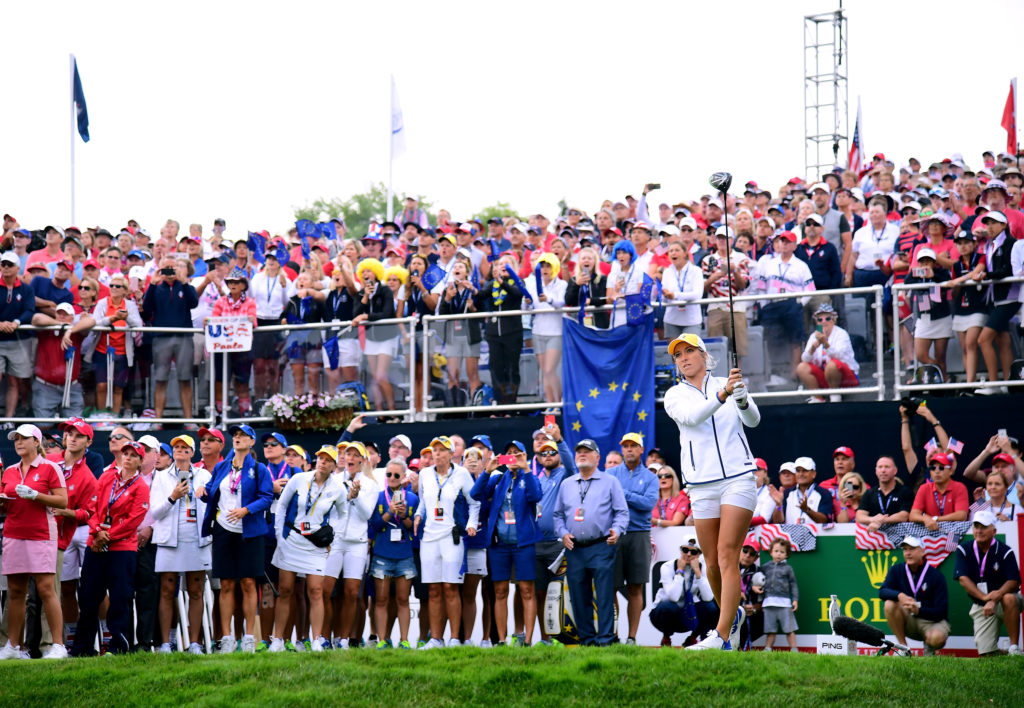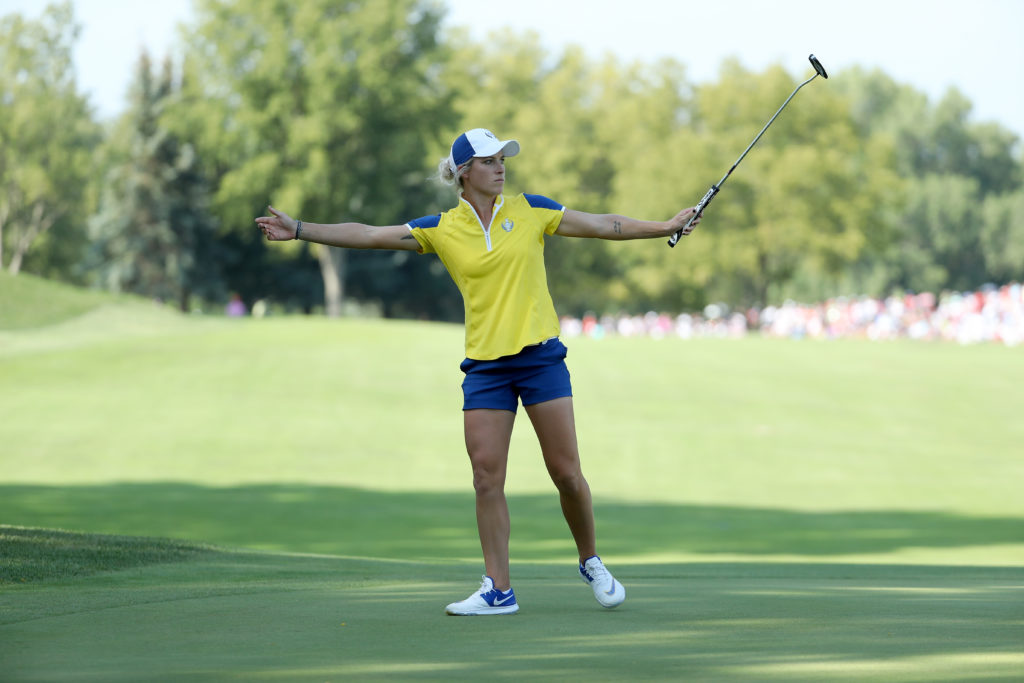LPGA Golfer Mel Reid Comes Out: ‘Be Proud of Who You Are’

We spoke with Mel Reid, a 6-time Ladies European Tour winner and LPGA golfer, on her decision to come out as gay and join Athlete Ally as a Pro Ambassador fighting for equality and inclusion in sport.
What was your process like coming out to yourself, and then to loved ones? What surprised you?
Looking back on it, I knew from quite a young age, but then never thought about it during my teenage years. It then crept up on me again when I started playing on Tour, meeting new people and traveling the world. I fell in love with a girl and I was excited about it, so I told my sister who was completely cool about it, and then my brother. My parents are older than most, but they couldn’t have been better about everything. They just assured me that as long as I love a good person, it doesn’t matter what race, gender or background they come from. I was very lucky my entire family is very liberal and embraced it totally.
How did you start playing golf, and what do you love about it?
I started playing golf because I used to play football (soccer for Americans) and my mum wanted to keep me occupied and busy during the summer holiday. She took me to the golf course that a few of my friends went to, and I fell in love with the social aspect of it, even though it’s an individual sport.
Nowadays, there are so many reasons why I love the game, but the biggest for me is how challenging it is, and that it really brings out your true character by exposing your weaknesses and more importantly your strengths. Plus, in my opinion, golf is one of the hardest sports on the planet to play, so when I play well it’s like a feeling I don’t get from anything else—complete euphoria!

Melissa Reid hits the opening shot of the Solheim Cup on August 18, 2017 in West Des Moines, Iowa. (Photo by Harry How/Getty Images)
How would having a more inclusive and representative golf community have changed your experiences as a pro golfer?
The Tour is a very welcoming community and it’s rare that anyone has an issue with sexuality or openly express any issues. The only problem we run into is that being gay is still illegal or frowned upon in certain countries we play in. There are also a lot of male-dominated sponsors that are looking for certain types of players, so that’s why I have felt I can’t be quite as open as I would like to be when it comes to my personal life.
I have always had good friends around me and supporting me, so I have never run into any huge issues with it during my career. The only issues I have had is when I have taken my girlfriend with me to dinners or awards, and I’m very conscious how I introduce her depending on the environment I’m in, because of the culture around the sport and the assumption that the sponsors would want to keep that part of my life quiet.
What changes do you hope to see in golf to make the sport more inclusive and representative?
I would love to see more women in business come forward and support women’s golf. At the LPGA, we have a great relationship with so many companies, but would love to have more women come to events and publicly support women in sport. I think this would make a big difference and create more exposure opportunities for us players. I’d also love to see more equipment companies in general support women and show our faces in stores and in ads.

Melissa Reid celebrates during the 2017 Solheim Cup in West Des Moines, Iowa. (Photo by David Cannon/Getty Images)
What advice would you give to young LGBTQ athletes who are wondering if they can be themselves and play the sport they love?
I protected my sexuality for a long time because I thought I had to in order to help my career and to get more sponsors. But then I started to wonder why these companies would want to sponsor me and have me represent them if I can’t be my authentic self. There is only one of you in the world and you have one life, so be the best version of yourself and be proud of who you are. That’s when you attract the right people around you to make you better, and ultimately, happier.
How do you see Athlete Ally’s work as helping to make sport more open and inclusive, and why did you want to become an Athlete Ally Ambassador?
I wanted to be part of Athlete Ally because I feel it’s important for people to be themselves. Just because they love someone that may not be ‘socially correct’, it does not make them any less of a person. It’s important for me to always fight for equality. I’ve been fortunate to have a platform to reach a lot of people and I’ve tried to take advantage of that when I can. Athlete Ally helps spread that message even further and I’m very excited to join the team.
Press inquiries: joanna.hoffman@athleteally.org
Want to receive stories like this in your inbox? Sign up here.